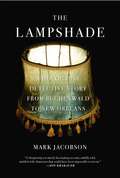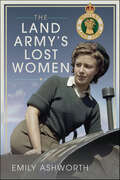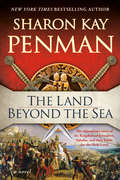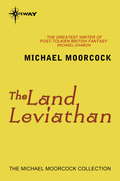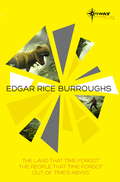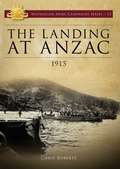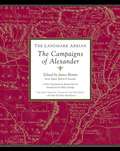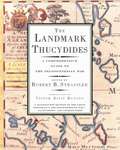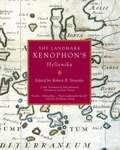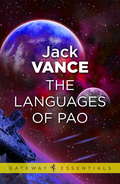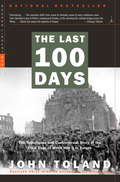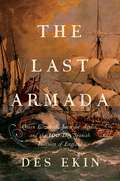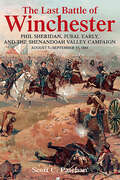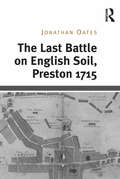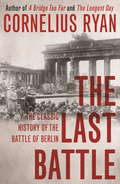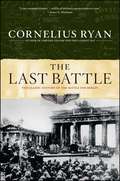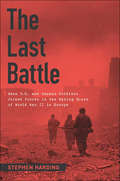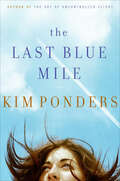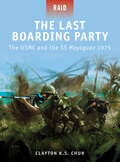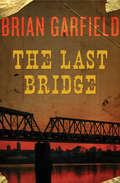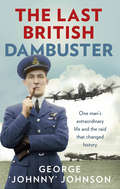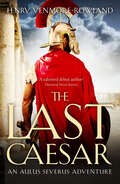- Table View
- List View
The Lampshade: A Holocaust Detective Story from Buchenwald to New Orleans
by Mark JacobsonFew growing up in the aftermath of World War II will ever forget the horrifying reports that Nazi concentration camp doctors had removed the skin of prisoners to makes common, everyday lampshades. In The Lampshade, bestselling journalist Mark Jacobson tells the story of how he came into possession of one of these awful objects, and of his search to establish the origin, and larger meaning, of what can only be described as an icon of terror.Jacobson’s mind-bending historical, moral, and philosophical journey into the recent past and his own soul begins in Hurricane Katrina–ravaged New Orleans. It is only months after the storm, with America’s most romantic city still in tatters, when Skip Henderson, an old friend of Jacobson’s, purchases an item at a rummage sale: a very strange looking and oddly textured lampshade. When he asks what it’s made of, the seller, a man covered with jailhouse tattoos, replies, “That’s made from the skin of Jews.” The price: $35. A few days later, Henderson sends the lampshade to Jacobson, saying, “You’re the journalist, you find out what it is.” The lampshade couldn’t possibly be real, could it? But it is. DNA analysis proves it.This revelation sends Jacobson halfway around the world, to Yad Vashem in Jerusalem and to the Buchenwald concentration camp in Germany, where the lampshades were supposedly made on the order of the infamous “Bitch of Buchenwald,” Ilse Koch. From the time he grew up in Queens, New York, in the 1950s, Jacobson has heard stories about the human skin lampshade and knew it to be the ultimate symbol of Nazi cruelty. Now he has one of these things in his house with a DNA report to prove it, and almost everything he finds out about it is contradictory, mysterious, shot through with legend and specious information.Through interviews with forensic experts, famous Holocaust scholars (and deniers), Buchenwald survivors and liberators, and New Orleans thieves and cops, Jacobson gradually comes to see the lampshade as a ghostly illuminator of his own existential status as a Jew, and to understand exactly what that means in the context of human responsibility.One question looms as his search goes on: what to do with the lampshade—this unsettling thing that used to be someone? It is a difficult dilemma to be sure, but far from the last one, since once a lampshade of human skin enters your life, it is very, very hard to forget.
The Lance and the Shield: The Life and Times of Sitting Bull
by Robert Marshall UtleyA new biography of the Lakota Sioux chief, drawing on original notes made in the 1920s and 1930s by Stanley Vestal, who transmuted them into an essentially literary accomplishment, Sitting Bull: Chief of the Sioux. Utley corrects misconceptions and enhances understanding by looking closely at the Hunkpapa world and at the details of the chief's life. Annotation c. by Book News, Inc., Portland, Or.
The Land Army's Lost Women
by Emily AshworthThe Women’s Land Army are probably one of the lesser-known branches of the women’s forces that served their country during World War Two. Thousands of women faced losing their stories to history, but in The Land Army's Lost Women, countless memoirs from members have been captured, to ensure the vital work these ladies carried out on farms across Britain is never forgotten. From friendships unbreakable by time, romances that blossomed into lifelong marriages and dances on a weekend in the local village, to tales of loneliness and isolation and backbreaking farm work, these women gave up their lives to ensure our nation could continue to be fed and took the places of men who went off to war. These are the personal stories from a group of women who deserve to be remembered; from a generation who will soon only live in our memories but who each played a vital role in helping to fight for our freedom from the fields of Britain.
The Land Beyond the Sea
by Sharon Kay PenmanFrom the critically acclaimed New York Times bestselling author Sharon Kay Penman comes the story of the reign of King Baldwin IV and the Kingdom of Jerusalem's defense against Saladin's famous army.The Kingdom of Jerusalem, also known as Outremer, is the land far beyond the sea. Baptized in blood when the men of the First Crusade captured Jerusalem from the Saracens in the early twelfth century, the kingdom defined an utterly new world, a land of blazing heat and a medley of cultures, a place where enemies were neighbors and neighbors became enemies.At the helm of this growing kingdom sits young Baldwin IV, an intelligent and courageous boy committed to the welfare and protection of his people. But despite Baldwin's dedication to his land, he is afflicted with leprosy at an early age and the threats against his power and his health nearly outweigh the risk of battle. As political deception scours the halls of the royal court, the Muslim army--led by the first sultan of Egypt and Syria, Saladin--is never far from the kingdom's doorstep, and there are only a handful Baldwin can trust, including the archbishop William of Tyre and Lord Balian d'Ibelin, a charismatic leader who has been one of the few able to maintain the peace. Filled with drama and battle, tragedy and romance, Sharon Kay Penman's latest novel brings a definitive period of history vividly alive with a tale of power and glory that will resonate with readers today.
The Land Leviathan
by Michael MoorcockSeeking the answer to the mystery of life, Captain Oswald Bastable visits the Temple of the Future Buddha and is thrown through time to a new twentieth century. Plague, anarchy and superstition rule the world where he finds himself. Bands of diseased mutants pillage the continents while pirate U-boats prowl the oceans. But from this chaos emerges Black Attila, commander of the African Hordes and master of the most terrible weapon ever devised by Man - the Land Leviathan, a terrifying ziggurat on wheels, a moving mountain of deadly artillery. At last, after centuries of cruel oppression, the Land Leviathan helps the Black Attila establish Black Power on an unimaginable, global scale. Unimaginable, that is, to anyone except Michael Moorcock who has re-written the history of the twentieth century in his own totally original, biting style.
The Land That Time Forgot SF Gateway Omnibus
by Edgar Rice BurroughsThe son of a Civil War veteran, Edgar Rice Burroughs was a prolific writer for the early pulp magazines. Famous the world over as the creator of Tarzan - and in SF circles for his Martian tales featuring John Carter - Burroughs turned his talents to a bewildering array of settings - the African jungle, Mars, Venus, the Wild West... and the Land that Time Forgot.This omnibus collects his tales of that lost world: THE LAND THAT TIME FORGOT, THE PEOPLE THAT TIME FORGOT and OUT OF TIME'S ABYSS.
The Landing at ANZAC 1915 (Australian Army Campaigns #12)
by Chris RobertsThe Landing at ANZAC, 1915 challenges many of the cherished myths of the most celebrated battle in Australian and New Zealand history – myths that have endured for almost a century. Told from both the ANZAC and Turkish perspectives, this meticulously researched account questions several of the claims of Charles Bean’s magisterial and much-quoted Australian official history and presents a fresh examination of the evidence from a range of participants. The Landing at ANZAC, 1915 reaches a carefully argued conclusion in which Roberts draws together the threads of his analysis delivering some startling findings. But the author’s interest extends beyond the simple debunking of hallowed myths, and he produces a number of lessons from the armies of today. This is a book that pulls the Gallipoli campaign into the modern era and provides a compelling argument for its continuing relevance. In short, today’s armies must never forget the lessons of Gallipoli.
The Landmark Arrian: The Campaigns Of Alexander
by Robert B. Strassler James RommThe Landmark Arrian is an important new edition of The Campaigns of Alexander, the most authoritative ancient account of one of the world's most brilliant military leaders. During twelve years of continuous campaigns, Alexander conquered an empire that stretched from the shores of the Adriatic to the edge of modern India. Arrian's history of those conquests, the most reliable and detailed account to emerge from the ancient world, is a work that will fascinate readers interested in classical studies, the history of warfare, and the origins of East-West tensions that still simmer today in Iraq, Iran, and Afghanistan. Drawing on Ptolemy's memoirs and other sources that have not survived antiquity, Arrian's portrait of Alexander is unmatched for its accuracy and immediacy. Having served as a high Roman official with command of an army, Arrian had a unique perspective on Alexander, imbued with a level of understanding that only firsthand military experience can provide. In the richly illustrated and annotated style of the Landmark series. The Campaigns of Alexander, which features an engaging and eloquent new translation by Pamela Mensch, brings together some of the preeminent classics scholars at work today to create what is certain to be the definitive edition of this essential work of history.
The Landmark Thucydides: A Comprehensive Guide to the Peloponnesian War
by Victor Davis Hanson Robert B. StrasslerThucydides called his account of two decades of war between Athens and Sparta "a possession for all time," and indeed it is the first and still most famous work in the Western historical tradition. Considered essential reading for generals, statesmen, and liberally educated citizens for more than 2,000 years, The Peloponnesian War is a mine of military, moral, political, and philosophical wisdom. However, this classic book has long presented obstacles to the uninitiated reader. Robert Strassler's new edition removes these obstacles by providing a new coherence to the narrative overall, and by effectively reconstructing the lost cultural context that Thucydides shared with his original audience. Based on the venerable Richard Crawley translation, updated and revised for modern readers. The Landmark Thucydides includes a vast array of superbly designed and presented maps, brief informative appendices by outstanding classical scholars on subjects of special relevance to the text, explanatory marginal notes on each page, an index of unprecedented subtlety, and numerous other useful features. In any list of the Great Books of Western Civilization, The Peloponnesian War stands near the top. This authoritative new edition will ensure that its greatness is appreciated by future generations.
The Landmark Xenophon's Hellenika (Landmark Series)
by Robert B. StrasslerFrom the editor of the widely praised The Landmark Thucydides and The Landmark Herodotus, here is a new edition of Xenophon’s Hellenika, the primary source for the events of the final seven years and aftermath of the Peloponnesian War. <p><p>Hellenika covers the years between 411 and 362 B.C.E., a particularly dramatic period during which the alliances among Athens, Sparta, Thebes, and Persia were in constant flux. Together with the volumes of Herodotus and Thucydides, it completes an ancient narrative of the military and political history of classical Greece. <p><p>Xenophon was an Athenian who participated in the expedition of Cyrus the Younger against Cyrus’ brother, the Perisan King Artaxerces II. Later Xenophon joined the Spartan army and hence was exiled from Athens. In addition to the Hellenika, a number of his essays have survived, including one on his memories of his teacher, Socrates. <p><p>Beautifully illustrated, heavily annotated, and filled with detailed, clear maps, this edition gives us a new, authoritative, and completely accessible translation by John Marincola, an comprehensive introduction by David Thomas, sixteen appendices written by leading classics scholars, and an extensive timeline/chronology to clarify this otherwise confusing period. <p><p>Unlike any other edition of the Hellenika, it also includes the relevant texts of Diodorus Siculus and the Oxyrhynchus Historian, with explanatory footnotes and a table that correlates passages of the three works, which is perhaps crucial to an assessment of Xenophon’s reliability and quality as a historian. Like the two Landmark editions that precede it, The Landmark Xenophon’s Hellenika is the most readable and comprehensive edition available of an essential history.
The Languages of Pao (Gateway Essentials #205)
by Jack VanceThe Panarch of Pao is dead and Beran Panasper, his young son and heir, must flee the planet to live and avenge his father's death. It is at the secret fortress on the planet Breakness that Beran discovers the dreaded truth behind the assassination of his father-and much more. The people of Pao are a docile lot, content to live in harmony with the rest of the cosmos, but the scientists at Breakness seek to alter the psychology of the Paonese for their own purpose-and Beran holds the key to their audacious plan. Beran will return to Pao, transforming his home world beyond his teacher's wildest dreams. But though he has been fashioned into a man of Breakness, Beran's heart is of Pao. And he brings to his world the seeds of change that will save Pao...or destroy it.
The Last 100 Days: The Tumultuous and Controversial Story of the Final Days of World War II in Europe (Modern Library War)
by John TolandA dramatic countdown of the final months of World War II in Europe, The Last 100 Days brings to life the waning power and the ultimate submission of the Third Reich. To reconstruct the tumultuous hundred days between Yalta and the fall of Berlin, John Toland traveled more than 100,000 miles in twenty-one countries and interviewed more than six hundred people--from Hitler's personal chauffeur to Generals von Manteuffel, Wenck, and Heinrici; from underground leaders to diplomats; from top Allied field commanders to brave young GIs. Toland adeptly weaves together these interviews using research from thousands of primary sources. When it was first published, The Last 100 Days made history, revealing after-action reports, staff journals, and top-secret messages and personal documents previously unavailable to historians. Since that time, it has come to be regarded as one of the greatest historical narratives of the twentieth century.
The Last Armada: The Story of the 100-Day Spanish Invasion
by Des EkinThe story of the last great naval battle between England and Spain, evoking a number of colorful and dangerous personalities who fought in the climactic conclusion to these two countries’ great rivalry on the sea. Ireland: Christmas Eve, 1601. As thunder crashes and lightning rakes the sky, three very different commanders line up for a battle that will decide the fate of a nation. General Juan del Águila has been sprung from a prison cell to command the last great Spanish armada. His mission: to seize a bridgehead in Queen Elizabeth's England and hold it. Facing him is Charles Blount, a brilliant English strategist whose career is also under a cloud. His affair with a married woman edged him into a treasonous conspiracy—and brought him to within a hair’s breadth of the gallows. Meanwhile, Irish insurgent Hugh O’Neill knows that this is his final chance to drive the English out of Ireland. For each man, this is the last throw of the dice. Tomorrow they will be either heroes or failures. These colorful commanders come alive in this true story of courage and endurance, of bitterness and betrayal, and of drama and intrigue at the highest levels in the courts of England and Spain.
The Last Battle
by Bruce Scates Melanie OppenheimerWhen Australian soldiers returned from the First World War they were offered the chance to settle on 'land fit for heroes'. Promotional material painted a picture of prosperous farms and contented families, appealing to returned servicepeople and their families hoping for a fresh start. Yet just 20 years after the inception of these soldier settlement schemes, fewer than half of the settlers remained on their properties. In this timely book, based on recently uncovered archives, Bruce Scates and Melanie Oppenheimer map out a deeply personal history of the soldiers' struggle to transition from Anzac to farmer and provider. At its foundation lie thousands of individual life stories shaped by imperfect repatriation policies. The Last Battle examines the environmental challenges, the difficulties presented by the physical and psychological damage many soldiers had sustained during the war, and the vital roles of women and children.
The Last Battle of Winchester: Phil Sheridan, Jubal Early, and the Shenandoah Valley Campaign, August 7–September 19, 1864
by Scott C. Patchan&“Unique insight, good storytelling skills, deep research, and keen appreciation for the terrain . . . one outstanding work of history.&” —Eric J. Wittenberg, award-winning author of Gettysburg&’s Forgotten Cavalry Actions The Third Battle of Winchester in September 1864 was the largest, longest, and bloodiest battle fought in the Shenandoah Valley. What began about daylight did not end until dusk, when the victorious Union army routed the Confederates. It was the first time Stonewall Jackson&’s former corps had ever been driven from a battlefield, and their defeat set the stage for the final climax of the Valley Campaign. This book represents the first serious study to chronicle the battle. The Northern victory was a long time coming. After a spring and summer of Union defeat in the Valley, Lt. Gen. Ulysses S. Grant cobbled together a formidable force under Phil Sheridan, an equally redoubtable commander. Sheridan&’s task was a tall one: sweep Jubal Early&’s Confederate army out of the bountiful Shenandoah, and reduce the verdant region of its supplies. The aggressive Early had led the veterans of Jackson&’s Army of the Valley District to one victory after another at Lynchburg, Monocacy, Snickers Gap, and Kernstown. Five weeks of complex maneuvering and sporadic combat followed before the opposing armies met at Winchester, an important town that had changed hands dozens of times over the previous three years. Tactical brilliance and ineptitude were on display throughout the daylong affair as Sheridan threw infantry and cavalry against the thinning Confederate ranks and Early and his generals shifted to meet each assault. A final blow against Early&’s left flank finally collapsed the Southern army, killed one of the Confederacy&’s finest combat generals, and planted the seeds of the victory at Cedar Creek the following month. This vivid account—based on more than two decades of meticulous research and an unparalleled understanding of the battlefield, and rich is analysis and character development—is complemented with numerous original maps and explanatory footnotes that enhance our understanding of this watershed battle.
The Last Battle on English Soil, Preston 1715
by Jonathan OatesWhilst much has been written about the Jacobites, most works have tended to look at the Rebellion of 1745, rather than the earlier attempt to reinstate the Stuart dynasty. As such this book provides a welcome focus on events in 1715, when Jacobites in both England and Scotland tried to oust George I and to replace him with James Stuart. In particular it provides a detailed narrative and analysis of the campaign in the Lowlands of Scotland and in the north of England that led to the decisive battle at Preston and ended the immediate prospects of the Jacobite cause. Drawing upon a wealth of under-utilised sources, the work builds on existing research into the period to give weight to the community and individual dimensions of the crisis as well as to the military ones. Contrary to popular myth, the Jacobite army contained both English and Scots, and because it surrendered almost intact, an analysis of the surviving list of Jacobite prisoners captured in the North West England reveals much information about their origins, occupations, unit structure and, sometimes, religion, as well as the quality of the soldiers’ arms and equipment, their experience and that of their leaders. Through this study of the last major battle to be fought on English soil, a clearer picture emerges of the individuals and groups who sought to mould the direction of the freshly created British state and the dynasty that should rule it.
The Last Battle: The Classic History Of The Battle For Berlin
by Cornelius RyanThe Battle for Berlin was the final struggle of World War II in the European theatre, the last offensive against Hitler's Third Reich, which devastated one of Europe's historic capitals and brought an end to the Nazi regime. It lasted more than two weeks across April -- May 1945, and was one of the bloodiest and most pivotal episodes of the war, one which would play a part in determining the shape of international politics for decades to come. THE LAST BATTLE is a story of brutal extremes, of stunning military triumph alongside the stark conditions that the civilians of Berlin experienced in the face of the Allied assault. It is history at its best, a masterful illumination of the effects of war on the lives of individuals, and one of the enduring works on World War II.
The Last Battle: The Classic History of the Battle for Berlin (A History Bestseller)
by Cornelius RyanThe classic account of the final offensive against Hitler&’s Third Reich.The Battle for Berlin was the culminating struggle of World War II in the European theater, the last offensive against Hitler&’s Third Reich, which devastated one of Europe&’s historic capitals and marked the final defeat of Nazi Germany. It was also one of the war&’s bloodiest and most pivotal battles, whose outcome would shape international politics for decades to come. The Last Battle is Cornelius Ryan&’s compelling account of this final battle, a story of brutal extremes, of stunning military triumph alongside the stark conditions that the civilians of Berlin experienced in the face of the Allied assault. As always, Ryan delves beneath the military and political forces that were dictating events to explore the more immediate imperatives of survival, where, as the author describes it, &“to eat had become more important than to love, to burrow more dignified than to fight, to exist more militarily correct than to win.&” The Last Battle is the story of ordinary people, both soldiers and civilians, caught up in the despair, frustration, and terror of defeat. It is history at its best, a masterful illumination of the effects of war on the lives of individuals, and one of the enduring works on World War II.
The Last Battle: When U.S. and German Soldiers Joined Forces in the Waning Hours of World War II in Europe
by Stephen HardingThe true story of US & German soldiers fighting side by side in the final days of WW II
The Last Blue Mile: A Novel
by Kim Ponders18-year-old Brook Searcy has just begun her first year at the Air Force Academy. Abandoned by her mother and raised by a loving yet distant father, Brook has surprised her traditional East Coast family by deciding to enter a completely foreign world -- the military. At the Academy she encounters both friends and terrifying foes, and experiences both first love and terrible loss as her relationships with her fellow cadets grow. Commandant John Waller, a former fighter pilot, has made the Air Force his life for nearly twenty years. His career couldn-t be in better shape, but he finds himself drifting away from his wife and daughters. And when a new (and female) Superintendent who-s never flown a plane becomes Waller-s new boss, he worries that the institution that he-s shaped his life around might be slipping away as well.Over the course of two years, terrible scandals and heartbreaking tragedy touch both Brook and Waller-s lives -- forcing them to make wrenching decisions that will shape both their careers and their lives.
The Last Boarding Party - The USMC and the SS Mayaguez 1975
by Steve Noon Clayton ChunOn April 30, 1975, the final curtain of America's long involvement in the Vietnam War fell. North Vietnamese forces captured Saigon while thousands of South Vietnamese refugees attempted to flee on foot, boat, and aircraft. The American public believed that the events in Southeast Asia had finally come to a bitter end. Less than two weeks later, President Gerald Ford ordered air, naval, and Marine forces to conduct combat operations in waters off Cambodia. On May 12, communist Cambodian Khmer Rouge elements seized the S.S. Mayaguez, an American merchant ship, and its crew in international waters. This act of piracy created an incident where U.S. Marine Corps elements attempted to rescue the Mayaguez, one of the most controversial raids in recent history. This book will track every development in the mission , an eventual success that demonstrated American resolve to use military forces in foreign policy issues after the Vietnam debacle.From the Trade Paperback edition.
The Last Bookshop in London: A Novel of World War II
by Madeline MartinThe New York Times bestseller—for fans of All the Light We Cannot See and The Tattooist of Auschwitz!&“An irresistible tale which showcases the transformative power of literacy, reminding us of the hope and sanctuary our neighborhood bookstores offer during the perilous trials of war and unrest.&”—KIM MICHELE RICHARDSON, author of The Book Woman of Troublesome CreekAugust 1939: London prepares for war as Hitler&’s forces sweep across Europe. Grace Bennett has always dreamed of moving to the city, but the bunkers and drawn curtains that she finds on her arrival are not what she expected. And she certainly never imagined she&’d wind up working at Primrose Hill, a dusty old bookshop nestled in the heart of London.Through blackouts and air raids as the Blitz intensifies, Grace discovers the power of storytelling to unite her community in ways she never dreamed—a force that triumphs over even the darkest nights of the war.&“A gorgeously written story of love, friendship, and survival set against the backdrop of WWII-era London.&”—JILLIAN CANTOR, author of In Another Time and Half Life&“A love letter to the power of books to unite us, to hold the world together when it&’s falling apart around our ears. This fresh take on what London endured during WWII should catapult Madeline Martin to the top tier of historical fiction novelists.&”—KAREN ROBARDS, author of The Black Swan of ParisDon't miss Madeline Martin's next heartwarming historical novel, The Booklover's Library!Also by Madeline Martin: The Librarian Spy The Keeper of Hidden Books
The Last Bridge
by Brian GarfieldA crack team of American specialists makes a deadly run into North VietnamCliffs hang over the rail bridge that crosses the Sang Chu River, protecting the vital North Vietnamese supply line from attack by American bombers. It&’s only accessible by a parachute drop that would put American GIs deep behind enemy lines. No point on the Ho Chi Minh Trail is more crucial to the Viet Cong war effort, and nowhere is more tightly guarded. Colonel David Tyreen has just sent a team to destroy the bridge, and none returned. It&’s time to assemble another team. The weather is awful, and the only plane available is a rickety old captured jet. Tyreen&’s mission is suicide, pure and simple, and he asks only for volunteers. The eight men who sign on have nothing to fear from death. This is lucky, for death approaches with all the speed of the swirling Sang Chu current.
The Last British Dambuster: One man's extraordinary life and the raid that changed history
by George Johnny MBEJohnny Johnson has been awarded an MBE for his remarkable services in World War II'I was anxious to fight. Hitler was the bastard who had started all this and he needed sorting out. We were under threat. Everything we stood for: our country, our families and our way of life was being attacked by this maniac. He could not be allowed to win. So for me and many, many others like me, there was no alternative. We were in a pickle and something had to be done.’Johnny Johnson is 95 years old and one of very few men who can recall first-hand the most daring and ingenious air raid of all time. He can also vividly remember his childhood spent working on a farm with his controlling father, the series of events that led him to the RAF and the rigorous training that followed. But it was his decision to join 617 Squadron, and the consequences, that have truly stayed etched in his mind. On 16 May 1943, Johnny, alongside 132 specially selected comrades, took off from Scampton airbase in Lincolnshire. For six weeks they had been trained to fulfil one mission that was near impossible: to destroy three dams deep within Germany’s Ruhr Valley. It was a daring task but, against the odds, Johnny and his crew survived. Sadly, 53 comrades did not.For the first time, Johnny relives every moment of that fatal night – and the devastating aftermath. He recalls with unique wit and insight the difficult training conducted in secrecy, the race against time to release the bombs, and the sheer strength and bravery shown by a small unit faced with great adversity and uncertainty. Embodying a whole squadron, and leaving a lasting legacy for generations to come, Johnny’s story is like no other.
The Last Caesar (The Aulus Severus Adventures)
by Henry Venmore-RowlandAs Emperor Nero casts his madness over Rome, a loyal soldier is caught in a conspiracy that threatens the empire in this historical epic. Rome, 68 AD: The tyrant emperor Nero has no heir, and whispers of rebellion are spreading fast. As Rome faces the possibility of becoming a republic once more, the ambitions of a few are about to bring untold corruption, chaos, and bloodshed. Aulus Caecina Severus, hero of the campaign against Boudica, has become part of a conspiracy to overthrow Caesar&’s dynasty. But is it really all for the good of Rome? The boundary between service and self-preservation is far from clear, and navigating this dangerous path requires all Severus&’ skills: as a cunning soldier and, increasingly, a deft politician. As the Year of the Four Emperors unfolds, the mighty Roman empire will be plunged into anarchy and civil war . . .
